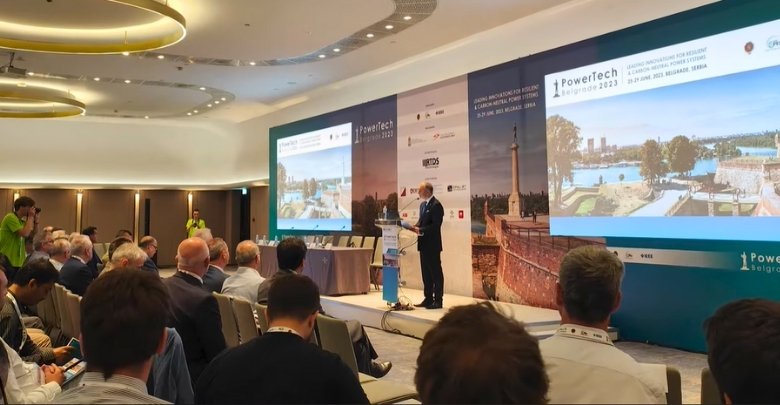Branding conferences are a great way to learn new ideas, meet people, and see what’s happening in the industry. Students, marketers, and business owners all join these events to gain knowledge and make connections. You don’t need to be an expert or have years of experience to attend.
But do you need a conference paper to attend a branding conference?
You do not need a conference paper to attend most branding conferences. These events welcome students, marketers, and business owners who want to learn and network. A paper is only needed if you plan to present at research-based or academic conferences. For general attendance, no paper is required.
Keep reading to learn what to expect, how to prepare, and how to get the most out of your experience.
Do You Need a Conference Paper to Attend a Branding Conference?
No, you don’t need a conference paper to attend most branding conferences. These events welcome students, marketers, business owners, and designers. A paper is only needed if you want to present at an academic or research conference. For general attendance, you can simply join to learn, listen, and network with others. Here is what you need to consider before attending a branding conference:
Purpose of Branding Conferences
Branding conferences are designed to share ideas, tools, and trends with people working in different industries. Many events focus on real-life examples, workshops, and keynotes that help professionals improve their branding skills quickly. People join to learn from experts and peers, not to show research or long written studies. Only academic conferences expect papers, because they look for structured research and theories to share with others.
Academic events usually attract researchers and scholars who study consumer behavior, design, or marketing methods. Their sessions are more formal, and presenters show papers with data and findings. The paper is the main part of participation there, and without it, you can’t present. That’s very different from practical branding events that focus on skills and connections.
Attendee Profiles and Expectations
General branding conferences attract business owners, students, marketers, and designers who want to grow their skills. People attend to hear stories, see examples, and join discussions about branding in action. No papers are needed here because the goal is learning, not showing research. Everyone can join and enjoy the sessions freely.
Academic conferences attract people who study branding in detail. They expect research, deep discussion, and data-driven presentations. Papers are needed here to prove expertise and knowledge. Without them, you can still listen, but you can’t take part as a presenter.
Networking Opportunities
Networking is one of the biggest reasons people attend branding conferences. Events create spaces for meeting new people and building professional contacts. Many connections happen during breaks, panels, or group sessions. You don’t need a paper for this, only an interest in talking with others.
Meanwhile, academic events often shape networking around research. Participants seek collaborators, partners, or feedback on studies. Here, papers guide conversations and serve as the foundation for most professional connections.
Professional Development Goals
Practical branding conferences offer workshops, case studies, and training sessions that help attendees grow their personal and business brands. These sessions focus on skills like design, storytelling, and digital branding. No paper is needed because the focus is practice, not research. Attendees leave with tools they can use right away.
On the other hand, academic conferences treat papers as a key to professional recognition. Presenters use their research and data to build credibility and gain respect in their field. This makes papers a requirement there, unlike in most branding-focused events.
Geographic Trends and Event Styles
In different countries, branding events are organized in different ways. For example, in the United States, practical branding events are very common in big cities. If you’re interested in learning more, you can explore upcoming conferences in USA, Germany, or Singapore. These countries often host large branding events focused on networking and skill-building.
Similarly, in Europe and other regions, academic branding events often follow a formal format. They prioritize structured presentations, theories, and data. Papers are usually required here, making them central to participation.
Value Without Papers
You can get great value from attending without papers. Branding events provide ideas, new contacts, and better skills. You leave with inspiration and connections that help your business or career. None of this requires a paper submission.
Academic conferences may require papers, but not everyone is there to present. Many still attend to listen and learn. Papers are only needed if you want to speak or share your research. For most branding conferences, attendance alone is enough to gain real benefits.
Typical Registration Requirements for Branding Conferences
The experience of attending a branding conference can be exciting and rewarding. These events give professionals, students, and entrepreneurs a chance to grow. Registration processes are usually straightforward, though each event may ask for different details. Understanding these steps helps attendees prepare better and avoid surprises.
- Basic Details: Organizers ask for name, email, and phone number for identification. These details confirm your spot and provide updates before sessions.
- Ticket Purchase: Most conferences require paid tickets for entry. Prices differ depending on categories like student, professional, or VIP access level.
- Identification Proof: A valid ID may be required during check-in. This prevents misuse of tickets and keeps the registration process smooth.
- Professional Role: Some events request a job title or organization. This helps organizers group attendees and improve networking opportunities during sessions.
- Special Sessions: Workshops may need separate sign-ups. Limited seats mean early registration ensures access to training and interactive learning opportunities.
- Accommodation Info: Large events sometimes offer hotel packages. Registering early gives better rates and avoids last-minute stress with lodging.
- Dietary Choices: For catered events, participants may state food preferences. This ensures meals match needs and avoids discomfort during longer sessions.
- Payment Method: Organizers often accept cards, transfers, or online wallets. Secure payment confirms attendance and generates receipts instantly for records.
Who Usually Submits Conference Papers to Attend Branding Conferences?
Branding conferences bring together many different people, each with their own ideas and goals. Some join to learn directly from experts, while others want to share their own work with the audience. Submitting a paper is one way to do that. The people who usually send papers belong to a few main groups. Here are the main groups of people who usually submit papers to branding conferences:
Academics and Researchers
Professors, teachers, and researchers often submit papers to conferences. They want to share new studies, fresh results, or creative ideas. These papers help others learn about changes in branding, business, and marketing. It also allows them to connect with others in their field.
Graduate Students
Young scholars and graduate students are another big group. They write papers to show their work and get noticed. Presenting at a conference helps them practice speaking skills and build a stronger profile. It is often their first step toward becoming well-known experts.
Industry Professionals
People working in companies also submit papers. They share real examples of how their brand ideas worked in the market. This could be about campaigns, strategies, or problems they solved with smart branding. For many professionals, conferences are a way to show practical knowledge.
Paper Writing Role
Not everyone knows how to create a strong paper, but some learn with time. Many professionals practice and improve before submitting. At times, they also look for guidance on how to write a conference paper for a branding conference. Sharing well-prepared work gives them confidence and recognition among their peers.
Diversity and Representation
Conferences now encourage voices from many backgrounds. Speakers come from different countries, cultures, and personal experiences, which makes sessions richer and more engaging. Still, studies show differences in how men and women are recognized. Including more diverse speakers helps conferences stay fair and balanced for everyone.
Considerable Factors While Submitting a Conference Paper to the Branding Conference
Submitting a paper to a branding conference takes thought and planning. Writers need to focus on details that make papers stand out. These factors help improve the chances of acceptance and ensure the paper connects with the right audience:
Topic Relevance
- Choose a subject that matches the theme of the conference. Organizers look for ideas that connect with current branding challenges.
- Stay updated with ongoing industry trends when selecting topics. A fresh and timely subject attracts more interest from reviewers.
Paper Structure
- Organize your paper into clear sections that flow smoothly. A proper structure makes it easier for readers to follow.
- Use headings and subheadings that guide the audience. Clear formatting allows conference judges to understand your points quickly.
Research Quality
- Strong research gives weight to your paper. Include reliable data and real examples that support your central argument well.
- Avoid weak sources because they reduce credibility. Using authentic references shows you respect academic standards in professional writing.
Writing Style
- Keep sentences short, clear, and easy to read. Complicated writing distracts readers and reduces the overall impact significantly.
- Use a natural tone that sounds engaging. A lively style keeps the audience focused while reviewing your submitted paper.
Conference Guidelines
- Carefully check the official instructions given by organizers. Missing even one detail can cause rejection before the review process.
- Pay attention to word limits, formatting, and required documents. Following every rule shows professionalism and respect for standards.
Original Contribution
- Add new insights or perspectives in your writing. Organizers value fresh ideas that expand understanding of branding-related issues.
- Avoid repeating ideas already presented in previous papers. Original work makes your submission unique and worth recognizing strongly.
Presentation Readiness
- Prepare your work with the mindset of speaking. Well-written papers can also serve as strong presentations during sessions.
- Practice explaining your main points clearly. Good delivery ensures your ideas reach the audience in a powerful way.
Benefits of Submitting Conference Paper to a Conference
Conferences are places where people meet, share, and learn from one another. They bring together students, professionals, and experts in one space. Sharing a paper can change the way others see your work and ideas. Many people gain more than knowledge when they take part. Here are some key benefits of submitting a conference paper that go beyond just sharing ideas:
Knowledge Sharing
Submitting a paper helps you share what you know with others. People listen, learn, and gain fresh ideas from your work. It creates a chance to start meaningful conversations. Many times, these discussions lead to a deeper understanding for everyone involved.
Skill Building
Writing a paper improves how you think, write, and explain ideas. These skills stay with you even after the event ends. You practice building stronger arguments. Over time, this makes you a clearer and more confident communicator.
Professional Growth
Submitting papers often gives recognition within your field. People begin to notice your work and respect your contributions. It builds your credibility in the industry. Step by step, this recognition can open doors for future opportunities.
Networking Chances
Conferences let you connect with people from different places and backgrounds. Sharing your paper makes those connections even stronger. People remember you for your ideas. Sometimes these connections grow into friendships, partnerships, or future career opportunities.
Industry Relevance
When you present a paper, you connect with current issues in branding and marketing. This keeps you updated with ongoing trends. It also shows that your ideas are relevant. That’s why many highlight the benefits of branding conference as a valuable reason for attending.
Confidence Boost
Presenting in front of an audience might feel scary at first. However, it quickly builds your confidence over time. Each experience makes you less nervous. Soon, speaking about your ideas feels natural and exciting.
Career Opportunities
Submitting a paper sometimes leads to bigger career opportunities. Employers value people who share their knowledge with larger communities. It shows initiative and effort. These qualities can help you stand out when looking for future roles.
FAQs About Conference Paper to Attend a Branding Conference
Branding conferences often raise many questions for students, professionals, and business owners. While papers are one part, attendance is much broader. Here are answers to common questions that help make things clear and easy to understand.
Can I Join a Branding Conference Without an Academic Background?
Yes, you can attend without being an academic. Most branding conferences welcome marketers, entrepreneurs, students, and even beginners. These events focus on sharing insights and practical ideas, not only academic research. Anyone interested in branding can benefit from attending.
Are Workshops at Branding Conferences Open to All?
Workshops are usually open to registered attendees, regardless of paper submission. They are designed for learning skills, gaining insights, and practicing strategies. Papers are rarely linked to workshop participation. You just need to secure your place during registration early.
Do Branding Conferences Offer Certificates for Attendance?
Many branding conferences provide certificates for attending, even without presenting a paper. These certificates highlight participation, learning, and skills gained. They are useful for resumes, portfolios, or professional records. Certificates prove commitment to personal growth and continued professional development.
Is Networking Possible Without Presenting a Paper?
Absolutely, networking is one of the main goals of branding conferences. Attendees connect through panels, meetups, and group activities. Papers are not necessary for these interactions. Friendships, partnerships, and collaborations often begin through casual conversations during conference breaks and sessions.
Do Branding Conferences Include Student Discounts?
Yes, many branding conferences offer special discounts for students to encourage participation. Discounts help make registration fees more affordable. Papers are not required to receive these student rates. Students can attend sessions, workshops, and networking opportunities while enjoying reduced costs.
Can Business Owners Attend Without Submitting Papers?
Yes, business owners are welcome at branding conferences without submitting papers. They attend to learn strategies, discover trends, and meet industry professionals. These events provide practical knowledge directly relevant to businesses. Papers are optional unless presenting in academic-focused conference settings.
Are Online Branding Conferences Paper-free?
Online branding conferences are generally open to all attendees without paper requirements. They focus on accessibility, convenience, and sharing knowledge virtually. Papers may be requested only for presenting sessions. For general participation, you simply need internet access and registration.
Do Branding Conferences Encourage International Attendees Without Papers?
Yes, international attendees are strongly encouraged to join without needing papers. Organizers want diverse audiences that share cultural and professional perspectives. Papers are only necessary for presenters. Anyone interested in branding topics can travel or join online events without issue.
Bottom Lines
Branding conferences give you many chances to learn, meet people, and improve your skills. These events are open to students, professionals, and business owners who want simple learning and new ideas. Many ask, do you need a conference paper to attend a branding conference, and the answer is usually no.
You only need a paper if you plan to present research or join academic sessions. The main value comes from listening, talking, and sharing experiences. By attending, you discover useful tips, build strong connections, and leave with ideas that help your future.








